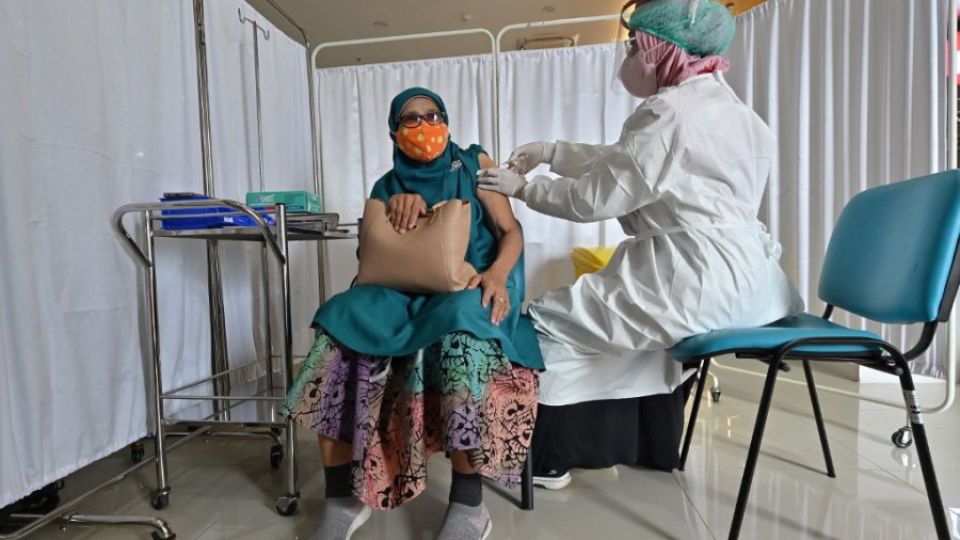January 18, 2023
JAKARTA – More than 200 health workers have yet to receive the promised financial incentives for their work on the frontlines of Indonesia’s pandemic response throughout 2022, independent data initiative LaporCOVID-19 has found.
The organization received a total of 241 reports regarding late payment of the incentives, a majority of which were filed by health workers in West Java and East Java and who mostly worked either in private hospitals or hospitals owned by regional administrations.
“While some people in the reports said that they had their incentives reduced, most in the reports said they had [their incentives] stopped. They might have received it in 2021, but they did not receive any in 2022,” LaporCOVID-19 researcher Siswo Mulyartono told a press briefing on Sunday.
This, he said, was due to a policy change last year.
“In 2021, [the budget] for these financial incentives was solely sourced from the central government. But in 2022, for medical workers who worked in regional administration-owned hospitals, their incentives were sourced from [the administration’s] regional budget [APBD].”
According to a Health Minister decree signed in March last year, all health workers who deal with coronavirus cases, from those working in hospitals and makeshift isolation centers to those working in laboratories, are entitled to monthly incentives that vary according to how many days they work and their positions. Nurses can earn up to Rp 7.5 million (US$497) and specialist doctors up to Rp 15 million.
The budgets for incentives in private hospitals, as well as hospitals owned by the central government, including military hospitals and emergency tents erected during the heights of the pandemic, are sourced from the state budget (APBN). The budget for incentives in hospitals owned by regional administrations, meanwhile, are sourced from the respective APBD.
“But, [regional administrations] often claim that they do not have the money [to pay the incentives], despite the fact that it is the government’s responsibility to ensure that medical workers are compensated,” Siswo said.
Intimidation
LaporCOVID-19 has also found some health workers who said they had been targets of intimidation by their employers after complaining about the late incentives. This included a case involving a worker from Semarang city in Central Java who ended up losing his job at a regional hospital after filing a complaint.
The worker, who remains unnamed and spoke through a voice recording during Sunday’s press briefing, said that he filed a report in July last year over unpaid incentives in February and March to LaporCOVID-19, which then forwarded the report to the Semarang Health Agency.
Things took a turn for the worse when the worker’s complaint was discovered by the hospital’s management.
“[After the hospital found out] I was sent to a hearing by the [hospital’s] deputy director. They told me that, for filing the complaint, I would be punished,” the worker said.
On Dec. 23, 2022 the hospital informed the worker that he had failed a mandatory psychological test for a contract extension. Earlier this month, the worker was handed a letter of dismissal and has not had another job since then.
“This has been a heavy blow for me, since I am not just fighting for my own rights, but I am asking for the rights of all health workers who have treated COVID-19 patients,” he said.
Toll on health workers
While the pandemic has begun to show gradual signs of easing amid the country’s low daily caseload and authorities have lifted all remaining mobility curbs, the health crisis has left its toll on health workers.
According to data from laporCOVID-19’s online memorial, over 2,000 health workers have died fighting the pandemic since March 2020.
A closer look at the data suggests that most died during the height of the deadly second wave of infections in July 2021, with over 500 health workers losing their lives that month.
Separately, a 2022 study done by the World Innovation Summit for Health (WISH) and the Qatar Foundation in collaboration with the World Health Organization (WHO) found that at least a quarter of health workers surveyed reported anxiety, depression and burnout symptoms.


